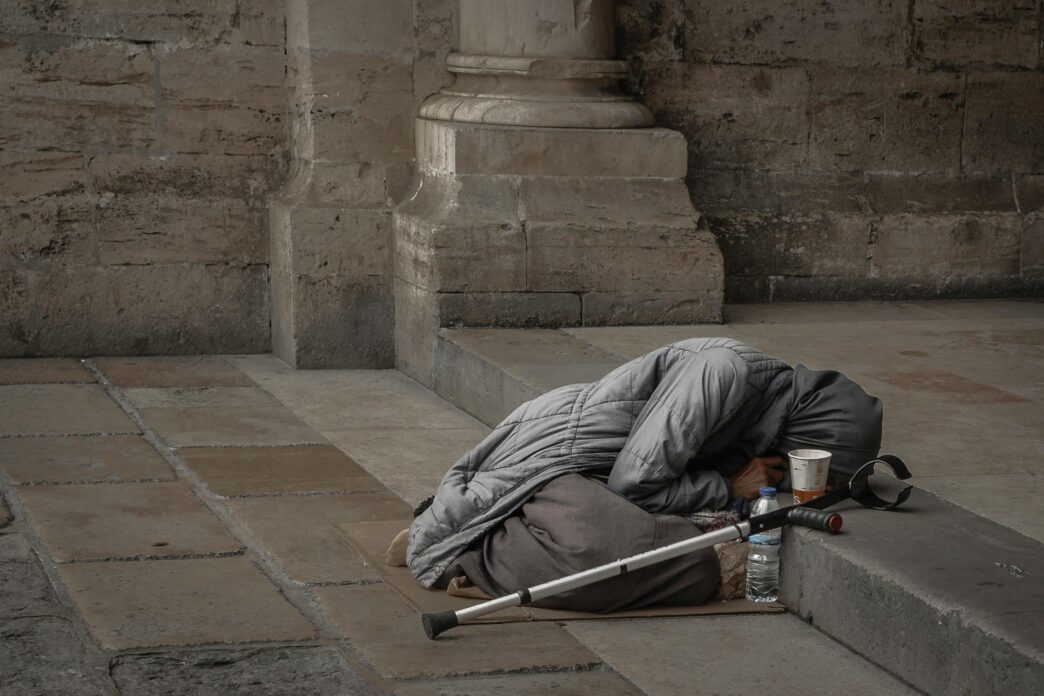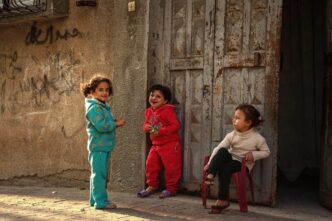One night in Madinah, a weary traveler arrived in the city, hungry and without shelter. He had nowhere to turn, but when he reached the Prophet Muhammad (PBUH), the response was immediate: the Prophet, despite having little to offer, asked his companions who among them would host the man for the night. Without hesitation, a companion took the guest home, shared his meal, and ensured he was cared for. The next morning, the Prophet (PBUH) praised this act of generosity, setting an example of communal responsibility toward those in need.
Homelessness is not just a modern crisis—it has existed throughout history, and Islam has always emphasized the duty to support those without shelter. In today’s world, where millions face homelessness due to economic hardship, war, and displacement, the lessons from the life of the Prophet (PBUH) and the Islamic framework of justice and charity remain as relevant as ever. This article explores how Islamic teachings address homelessness, providing historical and contemporary examples of Muslim-led humanitarianism and ethical responsibility
A Divine Responsibility: The Quranic Approach
Homelessness, in Islam, is not seen as an individual’s failure but a societal issue requiring collective responsibility. The Quran repeatedly emphasizes the care of the needy, the poor, and those without shelter.
“And they give food in spite of love for it to the needy, the orphan, and the captive.” (Quran 76:8)
This verse highlights that acts of charity and support should not be based on convenience but rather a selfless act of love and duty.
Another powerful verse reminds Muslims of their accountability:
“Have you seen the one who denies the Recompense? For that is the one who drives away the orphan and does not encourage the feeding of the poor.” (Quran 107:1-3)
Neglecting the homeless and needy is equated with disbelief, showcasing the gravity of this responsibility.
Prophetic Compassion: A Living Model of Service
The Prophet Muhammad (PBUH) did not merely preach about helping the homeless—he lived it. He was known for personally ensuring that the poor and displaced were taken care of, offering them food, shelter, and support.
The Ashab as-Suffa (People of the Bench) were a group of homeless companions who lived in the Prophet’s Mosque. Instead of marginalizing them, the Prophet (PBUH) created a system where they were provided for by the community. Many of them went on to become scholars and leaders, proving that investing in the homeless is an investment in the betterment of society.
One hadith encapsulates this duty:
“The best of people are those who are most beneficial to mankind.” (Al-Mu’jam al-Awsat, 6190)
The emphasis here is not just on personal piety but on tangible acts of service and communal welfare.
Throughout Islamic history, waqf (endowments) played a crucial role in providing for the homeless. Cities under Muslim rule had dedicated shelters, soup kitchens, and institutions that supported travelers, the poor, and the displaced. In the Ottoman Empire, for instance, large waqfs were established to fund homes, hospitals, and free kitchens that served food daily to the needy.
In medieval Baghdad, homes were set aside for the homeless, funded by charitable donations, demonstrating a long-standing commitment to tackling this issue.
Contemporary Muslim Humanitarian Efforts
Muslim charities continue this legacy today. Organizations such as Islamic Relief, Penny Appeal, and Muslim Hands have initiated housing projects, emergency shelters, and sustainable solutions for those without homes. In the UK, initiatives like the National Zakat Foundation help homeless Muslims find stable housing while empowering them with education and job opportunities.
One inspiring example is a mosque in Turkey that transformed an unused area into a shelter for the homeless, offering them food, medical care, and counseling—reminiscent of the Prophet’s (PBUH) approach to the Ashab as-Suffa.
Challenges and Misconceptions
Despite Islamic teachings, many communities still hold a stigma around homelessness. Some perceive it as a personal failure rather than recognizing the broader socio-economic factors involved. This mindset contradicts Islamic values, which teach that poverty and homelessness can befall anyone and that assisting those in need is a duty, not a choice.
While charity is essential, it is not enough. Many Muslim-majority countries struggle with housing crises, refugee displacement, and economic hardship. The solution requires a combination of charity and systemic change—implementing policies that prioritize affordable housing, fair wages, and support for the underprivileged.
Conclusion
Islamic teachings on homelessness go far beyond temporary aid; they demand a just and compassionate approach that uplifts individuals and restores dignity. The Prophet Muhammad (PBUH) demonstrated that serving the homeless is an act of worship, deeply intertwined with faith and accountability.
In a world where millions remain without shelter, Muslims must revive this Prophetic legacy—not only through charity but by advocating for systemic solutions that ensure every human being has a place to call home.
May Allah guide us in our efforts to support the vulnerable and grant us the ability to be true stewards of justice and mercy.
“O Allah, help us to be among those who feed the hungry, shelter the homeless, and uplift the oppressed. Grant us hearts that ache for the suffering of others and hands that work tirelessly for their relief. Ameen.”










